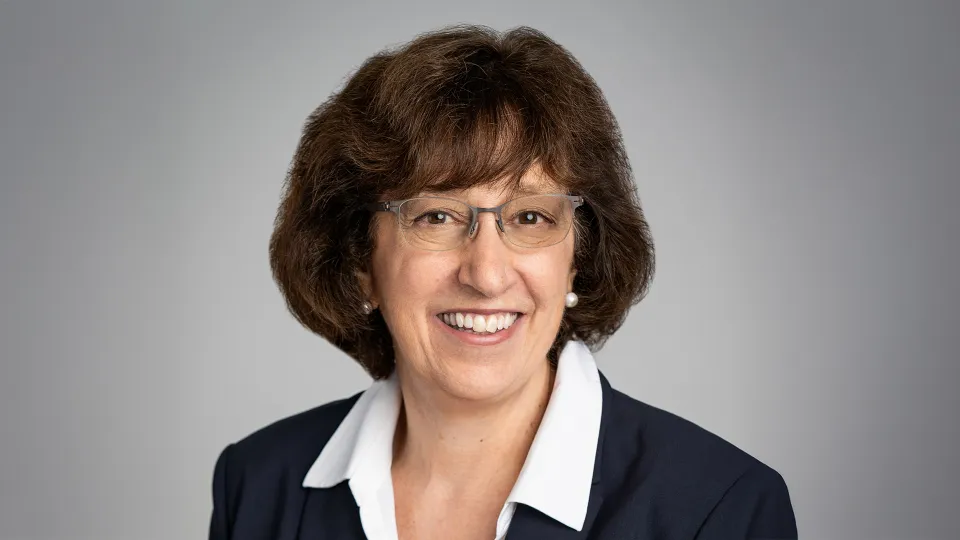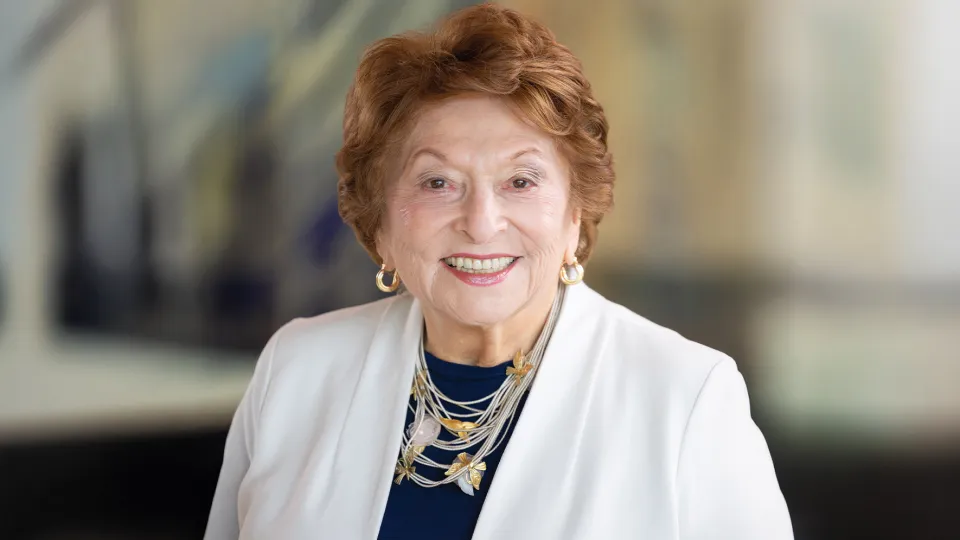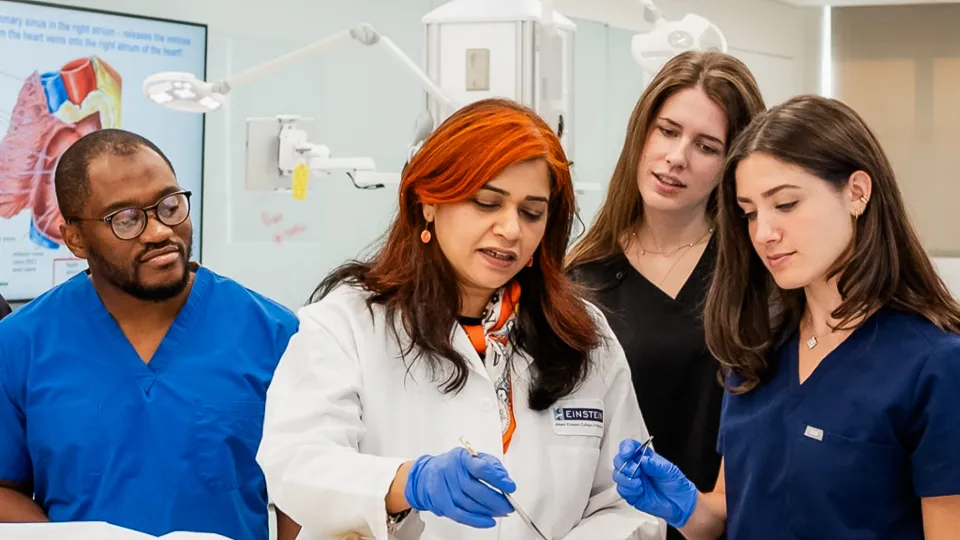News Release
Einstein Represented in Two Key Roles at National Board of Medical Examiners
April 20, 2023
April 20, 2023—BRONX, NY— Two Albert Einstein College of Medicine-associated physicians—Joshua Nosanchuk, M.D., senior associate dean for medical education, and Reena Karani, M.D. ’97, an Einstein alumna now at the Icahn School of Medicine at Mount Sinai—were recently elected to leadership posts at the National Board of Medical Examiners (NBME), the country’s primary medical assessment nonprofit organization.

Dr. Nosanchuk, who is also professor of medicine and of microbiology & immunology at Einstein and an infectious disease specialist at Montefiore Medical System, was elected as one of four new at-large board members. Dr. Karani, who was chief resident at Montefiore after graduating from Einstein, was elected chair of NBME, the first woman of color to hold the position in the organization’s 108-year history. She currently serves as director of the Institute for Medical Education and professor of medical education, of geriatrics and palliative medicine and of medicine at Mount Sinai.
“It speaks volumes about Einstein’s exceptional commitment to educational innovation and evidence-based assessments that Drs. Nosanchuk and Karani were elected to these critical positions,” said Gordon F. Tomaselli, M.D. ’82, the Marilyn and Stanley M. Katz Dean at Einstein and executive vice president and chief academic officer at Montefiore.
Among the NBME’s most important functions is creating assessments and learning tools for health professionals, including the comprehensive exams known as Steps 1, 2, and 3 developed in partnership with the Federation for State Medical Board. These assessments, formally called the United States Medical Licensing Examination program (USMLE), are required to obtain a license to practice medicine. Medical faculty from across the country write the test questions, which are reviewed by members of the NBME staff and its numerous committees.
Einstein’s Added Value
Drs. Nosanchuk and Karani agreed that Einstein’s representation on the NBME board was testament to its reputation.
“We’re a medical school that’s valued on the national level,” said Dr. Nosanchuk, who was first nominated to join an NBME committee nearly 20 years ago. “The NBME looks forward to getting people from our institution involved, and we’ve brought a lot of value to them. Service is a theme across Einstein, so the fact that we’re able to serve and do good there is true to our mission.”
Dr. Nosanchuk met Dr. Karani in 2016 when they served together on a committee. When Dr. Karani told him she was an Einstein graduate, “our talks went on from there. We have been close friends and text frequently and the NBME was the reason for our meeting and friendship blossoming,” he said.
“Einstein is part of both of our stories that we reflect on and bring to bear in our work,” Dr. Karani added. “It’s pretty amazing that two of us with this core identity at Einstein are on this board. We represent the values of a school that is progressive and innovative within a Bronx community that has deep healthcare needs.”
Dr. Nosanchuk’s Years of Service
Dr. Nosanchuk has held a range of positions at NBME, including chair of the test development committee for microbiology and immunology, member of NBME’s management and interdisciplinary review committees, a reviewer of its comprehensive basic science exam, and a panelist that set standards for the Step 1 exam. He currently serves on a committee that develops test materials on pharmaceutical advertisements and drug warnings.
“I have learned so much from all of the individuals on my committees and panels,” he said. “Working in these groups helps me bring best practices for medical educational teaching and assessments back to Einstein.”
Dr. Nosanchuk said assessments are critical to patient safety. “You need to have a core amount of information to practice medicine,” he said. “We need to make sure that the knowledge and breadth of understanding remains in place for future physicians, and one way we do that is through creating exams that demonstrate high-level, complex problem-solving skills.”
The NBME looks forward to getting people from our institution involved, and we’ve brought a lot of value to them. Service is a theme across Einstein, so the fact that we’re able to serve and do good there is true to our mission.
Joshua Nosanchuk, M.D.
Landmark Chair
Before her election as chair earlier this year, Dr. Karani served as an at-large board member and NBME treasurer. Since she became involved with the board in 2011, she has served on NBME’s council, the audit and finance committee, the Step 2 clinical skills test materials development committee, and the Step 3 computer case simulations committee. She currently chairs the USMLE patient characteristics advisory panel that is focused on ensuring exam content, practices, and review processes is consistent with contemporary scientific knowledge and understanding.
Dr. Karani learned of her nomination to be chair in a phone call from the chair of the nominating committee. “It was incredible and I had to sit down,” she recalled. “It’s a lot when you think of being the first woman of color to have an opportunity to serve as board chair for an organization that is 108 years old and is committed to the health of the public through assessment. I realized there were probably so many people like me in the past who never got the opportunity to serve…I feel that I’m participating in an effort that has meaning and value and that centers exactly what matters in medicine.”



